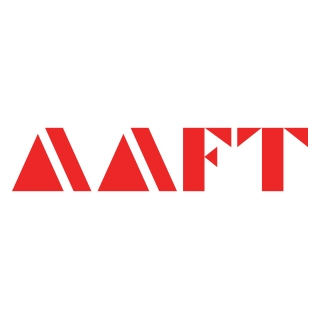Nutrition & Dietetics Courses After 12th: Course Details, Eligibility, and Fee 2025
This blog is all about how to choose a career in Nutrition & Dietetics after class 12th, how to become a Nutrition and Dietetics expert. Choosing a career path after completing your 12th standard can be a challenging decision. For those interested in health, wellness, and food sciences, pursuing a course in Nutrition and Dietetics presents a valuable opportunity. This field focuses on the relationship between diet, health, and disease management, providing a platform for students to make a significant impact on individual and public health. In this blog, we will explore the details of pursuing a Nutrition and Dietetics course after 12th, including course specifics, eligibility criteria, fee structure, and more for the year 2025.
What is Nutrition & Dietetics?
Nutrition and Dietetics involves the study of food management, nutrition science, and dietary care that helps to promote health through food choices. Dietitians and nutritionists play a crucial role in creating balanced meal plans, supporting clinical health conditions, and enhancing overall wellness through tailored dietary advice.
Read Also: Top 7 Careers in Nutrition and Dietetics
Why Choose a Nutrition and Dietetics Course?
The field of Nutrition and Dietetics is gaining importance as more people seek expert advice on how to manage their health through diet. With the rising incidence of lifestyle diseases such as diabetes, obesity, and heart-related conditions, there is a growing demand for dietetics professionals. These courses equip you with the scientific knowledge of human nutrition and practical skills needed to advise and support patients and clients in achieving healthy dietary habits.
Eligibility for Nutrition and Dietetics Courses
- Educational Background: Candidates must have completed their 12th standard from a recognized board. Although students from any stream can enroll, those from a science background might find it easier due to the biology and chemistry content of the course.
- Entrance Exams: Some universities and colleges may require students to pass an entrance exam. These exams typically test the candidate’s knowledge of science subjects and general aptitude.
- Language Proficiency: As many courses are taught in English, proficiency in the language may be necessary, particularly in non-English speaking countries or regions.
Do you want free career counseling?
Ignite Your Ambitions- Seize the Opportunity for a Free Career Counseling Session.
- 30+ Years in Education
- 250+ Faculties
- 30K+ Alumni Network
- 10th in World Ranking
- 1000+ Celebrity
- 120+ Countries Students Enrolled
Read Also: Who is a Nutritional Therapist | Complete Overview
Types of Nutrition and Dietetics Courses
- Diploma Courses: These are short-term programs providing foundational knowledge and practical skills in nutrition and dietetics, suitable for entry-level positions or further study.
- Bachelor’s Degree: Typically a four-year program, such as a Bachelor of Science in Nutrition and Dietetics, offering comprehensive coverage of all critical aspects of the field including advanced scientific and applied topics.
- Master’s Degree: Advanced studies focusing on specialized topics such as sports nutrition, pediatric nutrition, or public health nutrition. These programs are designed for those looking to advance their expertise or move into research and higher-level professional roles.
Read Also: The Wellness Wave: Trends in Nutrition and Dietetics Training 2025
Key Areas of Study in Nutrition and Dietetics
- Basic Nutrition: This fundamental area covers the essential nutrients required for health, their sources, and their impact on the human body. Students learn how nutrients affect metabolism, growth, and overall health.
- Medical Nutrition Therapy: This involves the application of nutrition science to treat or manage diseases. Students are taught how to design dietary interventions that can assist in the management of conditions such as diabetes, heart diseases, and allergies.
- Food Science and Safety: Critical for ensuring the safety and nutritional quality of food, this area includes the study of food composition, preservation, packaging, and safety regulations.
- Diet and Meal Planning: Students learn to develop and manage comprehensive diet plans tailored to the nutritional needs of individuals based on various factors including age, health condition, and lifestyle.
- Community and Public Health Nutrition: This field focuses on improving public health through nutrition education and community-based programs. It includes planning, implementing, and evaluating nutritional programs designed to prevent disease and promote health at the community level.
Nutrition & Dietetics Course Fee Structure
The fees for Nutrition and Dietetics courses can vary significantly depending on the institution and the type of program. Generally:
Book Now →
Read Also: How to Take Control of Your Health While Managing the Stress in Your Life
- Diploma Courses may cost anywhere from INR 10,000 to INR 50,000 per annum in India.
- Bachelor’s Degree programs can range from INR 20,000 to INR 1,50,000 annually.
- Master’s Degree programs typically range from INR 30,000 to INR 2,00,000 per year.
Career Opportunities in Nutrition and Dietetics
- Clinical Dietitian: Clinical dietitians work in hospitals or healthcare settings, designing nutrition programs for patients based on their medical conditions. Salaries typically start around INR 3 lakhs per annum in India and can go up to INR 6 lakhs with experience.
- Sports Nutritionist: These professionals specialize in planning diets for athletes and sports teams to enhance performance. Starting salaries are around INR 4 lakhs per annum, potentially rising to INR 10 lakhs or more in elite athletic organizations.
- Public Health Nutritionist: Focused on community health, these nutritionists work in government or non-profit sectors to develop broad-based nutrition programs. Salaries usually range from INR 3.5 lakhs to INR 8 lakhs per annum.
- Food Service Manager: Overseeing food planning, safety, and service in settings like schools, hospitals, and restaurants. The average salary for food service managers is between INR 4 lakhs to INR 7 lakhs annually.
- Researcher and Academician: Conducting research in various aspects of nutrition and teaching at higher education institutions. Salaries can vary widely but generally start from INR 3 lakhs per annum and can exceed INR 10 lakhs with seniority and grants.
Read Also: Eat Well, Live Well: Why this Nutrition & Dietetics Course Could Change Your Life
These roles vary widely in their responsibilities and impact, from individual patient care to influencing the dietary habits of entire populations.
Do you want free career counseling?
Ignite Your Ambitions- Seize the Opportunity for a Free Career Counseling Session.Conclusion
If you have a passion for health and wellness and want to create a positive impact in the field of nutrition and dietetics, the B.Sc Nutrition & Dietetics course at AAFT will be an excellent fit for you. The course curriculum, which encompasses all critical nutrition and dietetic principles and best practices, will equip you for a successful life and career in the sector. AAFT is eager to motivate you to get the help you need by providing you with the most up-to-date facilities and a promising faculty. This program offers a comprehensive curriculum that covers all essential areas of nutrition and dietetics, preparing you for a successful career in this vital industry. A bracing instructional guide mission is designed to set up the Nutrition and Dietetics profession after the 12th. It may well be a smart job move for you because it integrates science, health, and job joy and expects fitness-conscious around the globe to increase.
Faq
What educational background do I need to pursue a course in Nutrition and Dietetics?
To enroll in a Nutrition and Dietetics course, you should have completed your 12th standard from a recognized board. Students from all streams are eligible, although those with a background in science may find the course content more accessible due to its emphasis on biology and chemistry.
Are there any entrance exams required for Nutrition and Dietetics courses?
Yes, some institutions may require you to pass an entrance exam that generally tests your knowledge in science subjects and your aptitude in this field. It’s best to check with the specific college or university for their exact admission requirements.
What key areas are studied in Nutrition and Dietetics courses?
The courses typically cover basic nutrition, medical nutrition therapy, food science and safety, diet and meal planning, and community/public health nutrition. Each of these areas equips you with the knowledge and skills needed to practice as a professional in various settings.
How much does it typically cost to pursue a Nutrition and Dietetics course?
The fees can vary greatly depending on the institution and the type of program. In India, diploma courses might cost between INR 10,000 to INR 50,000 per year, while bachelor’s degrees can range from INR 20,000 to INR 1,50,000 annually, and master’s degrees from INR 30,000 to INR 2,00,000 per year.
What are the potential salaries for careers in Nutrition and Dietetics?
Salaries vary based on the role and experience. Starting salaries in India can range from INR 3 lakhs per annum for clinical dietitians to INR 4 lakhs for sports nutritionists, with potential increases based on experience and the specific sectors they work in.

AAFT has been providing the world with limitless creativity and expression since 1993! Through a dynamic and industry-driven curriculum, AAFT provides engaging and captivating articles to persuasive blogs and empowers its readers to explore diverse avenues of creative media education-related content.








